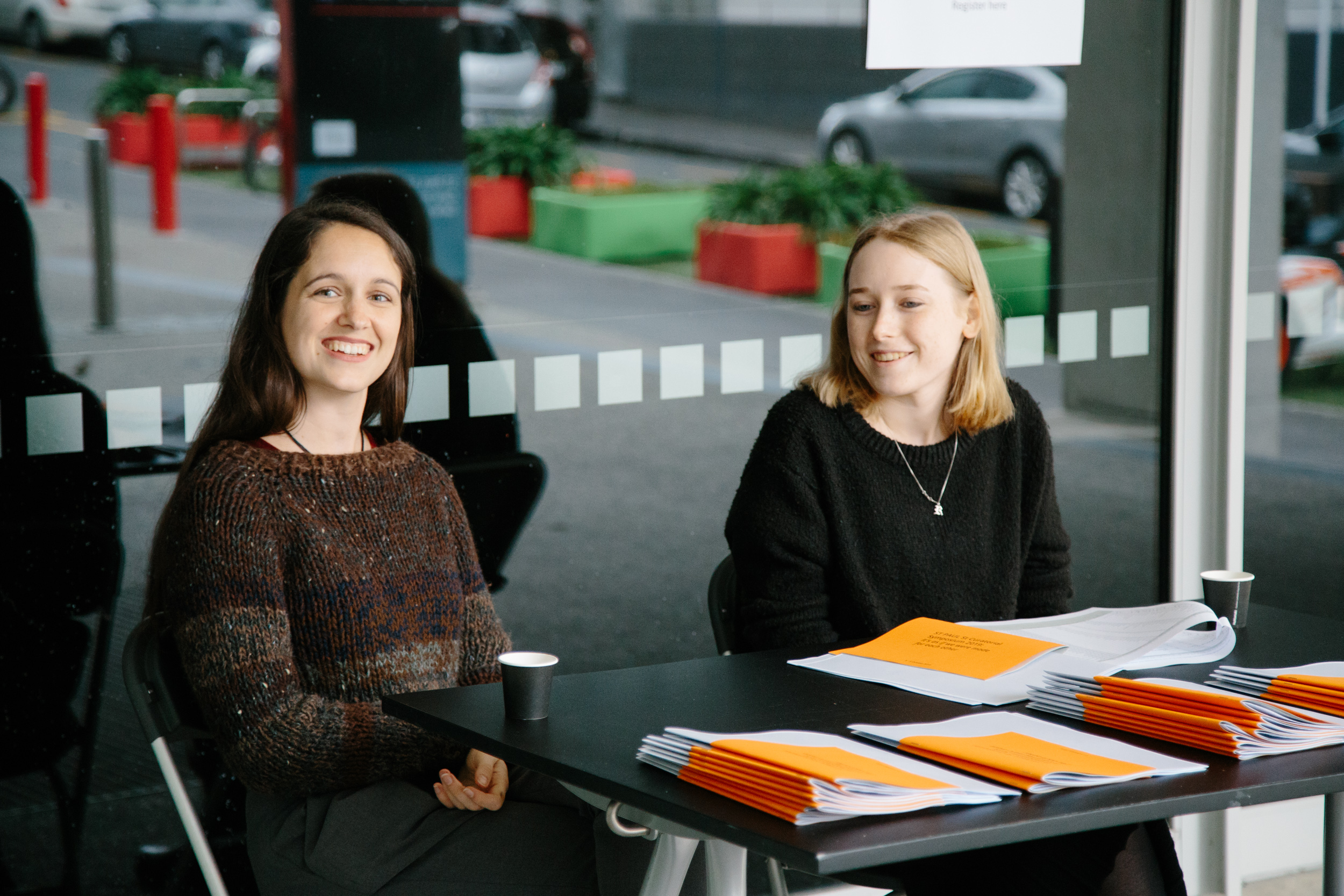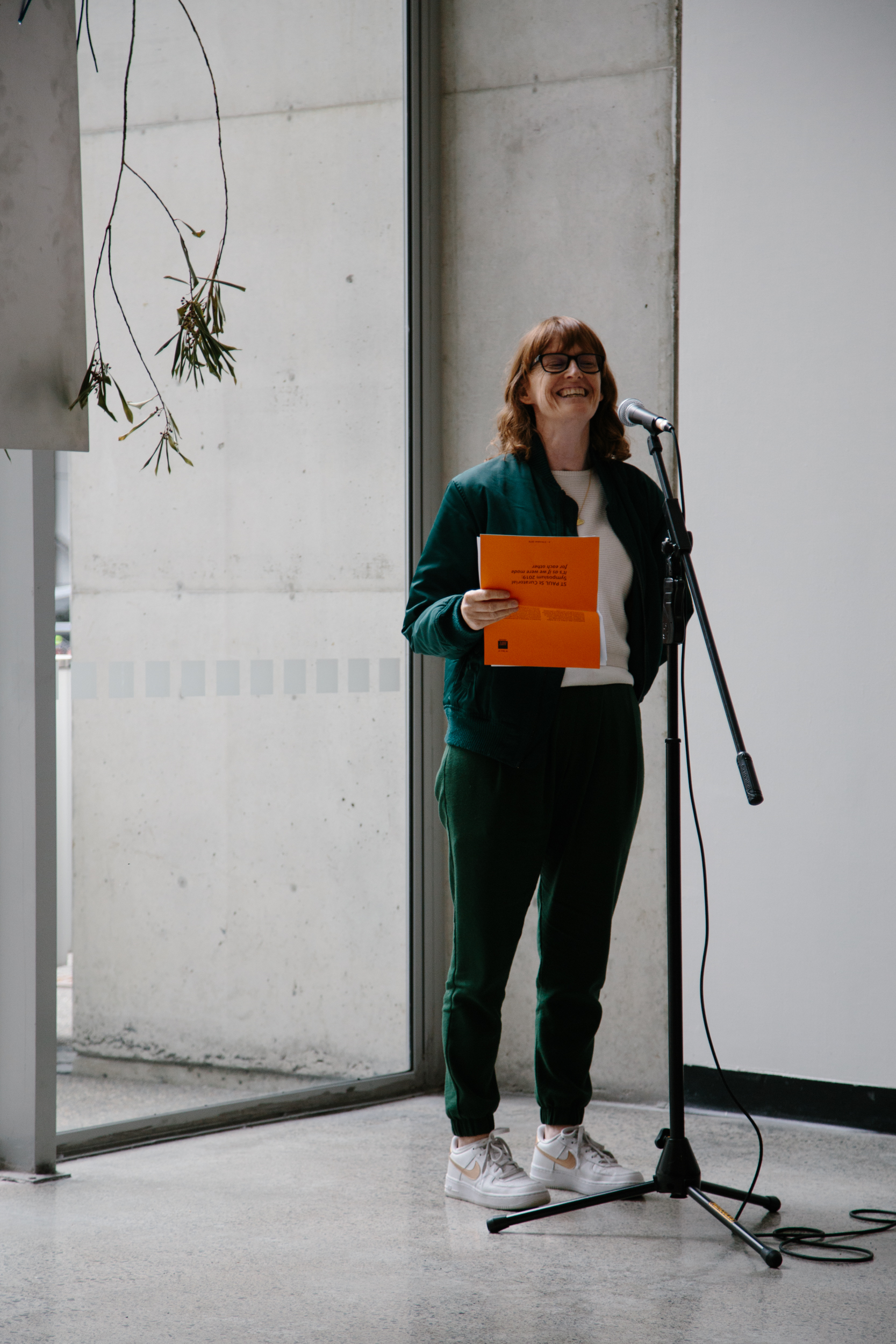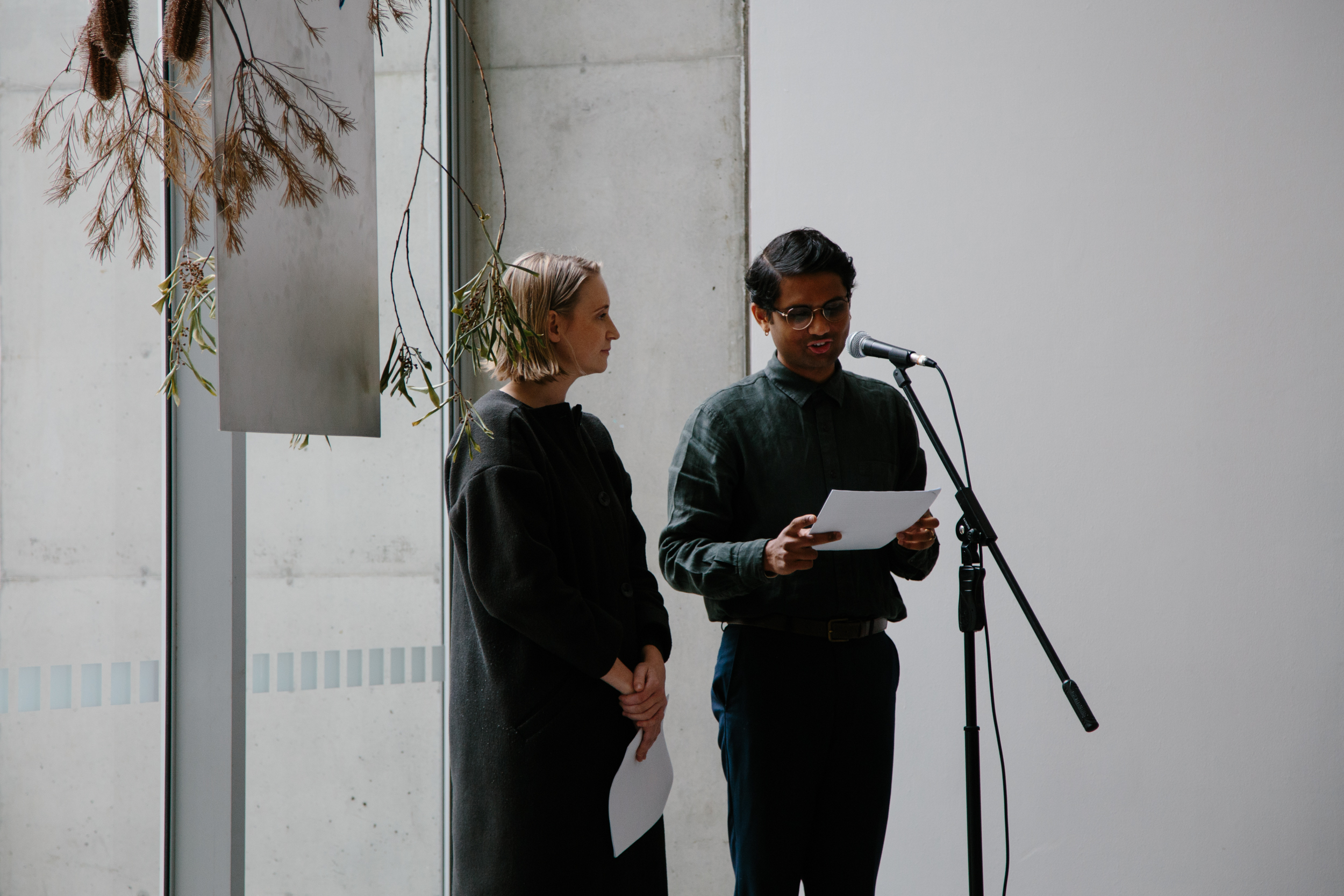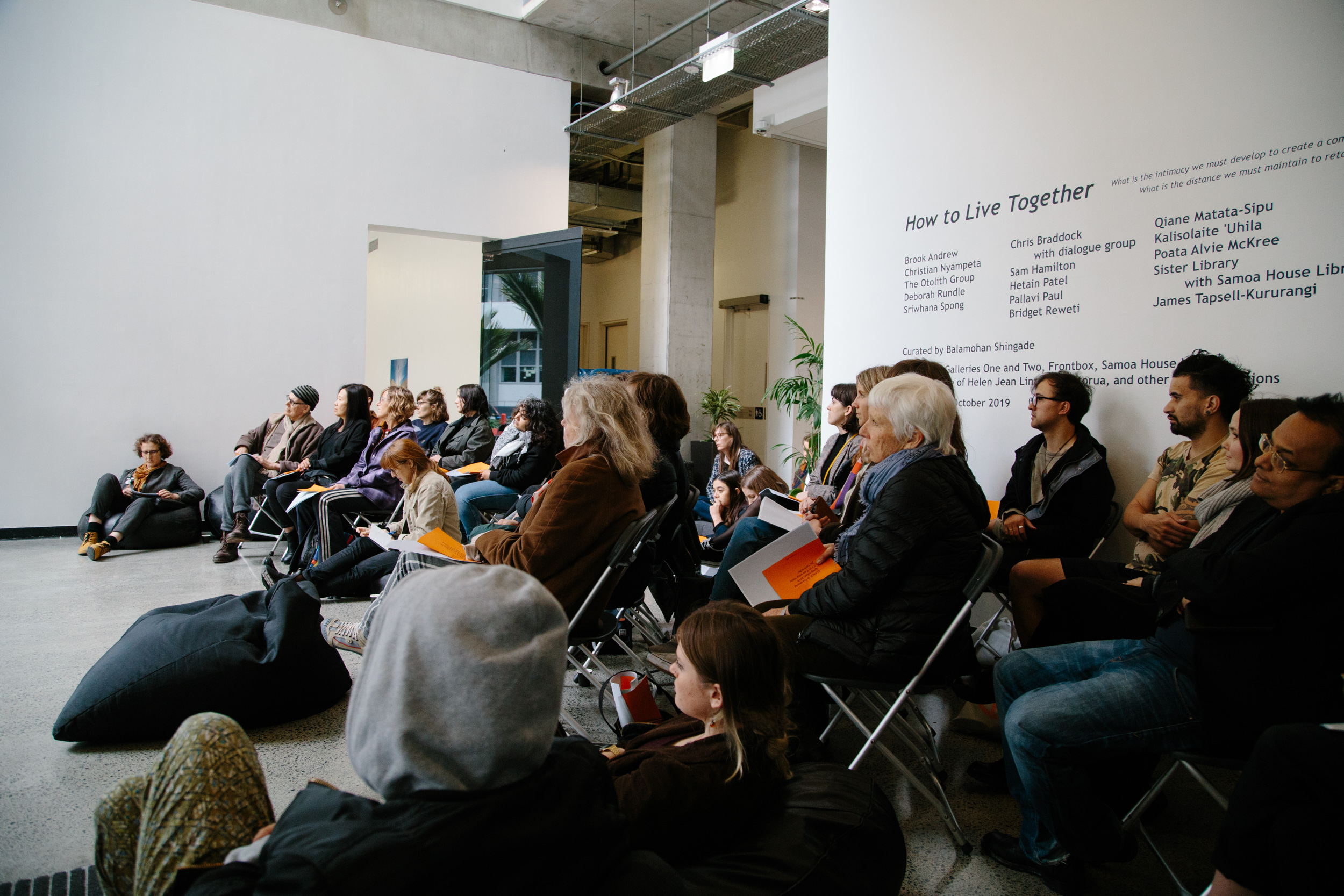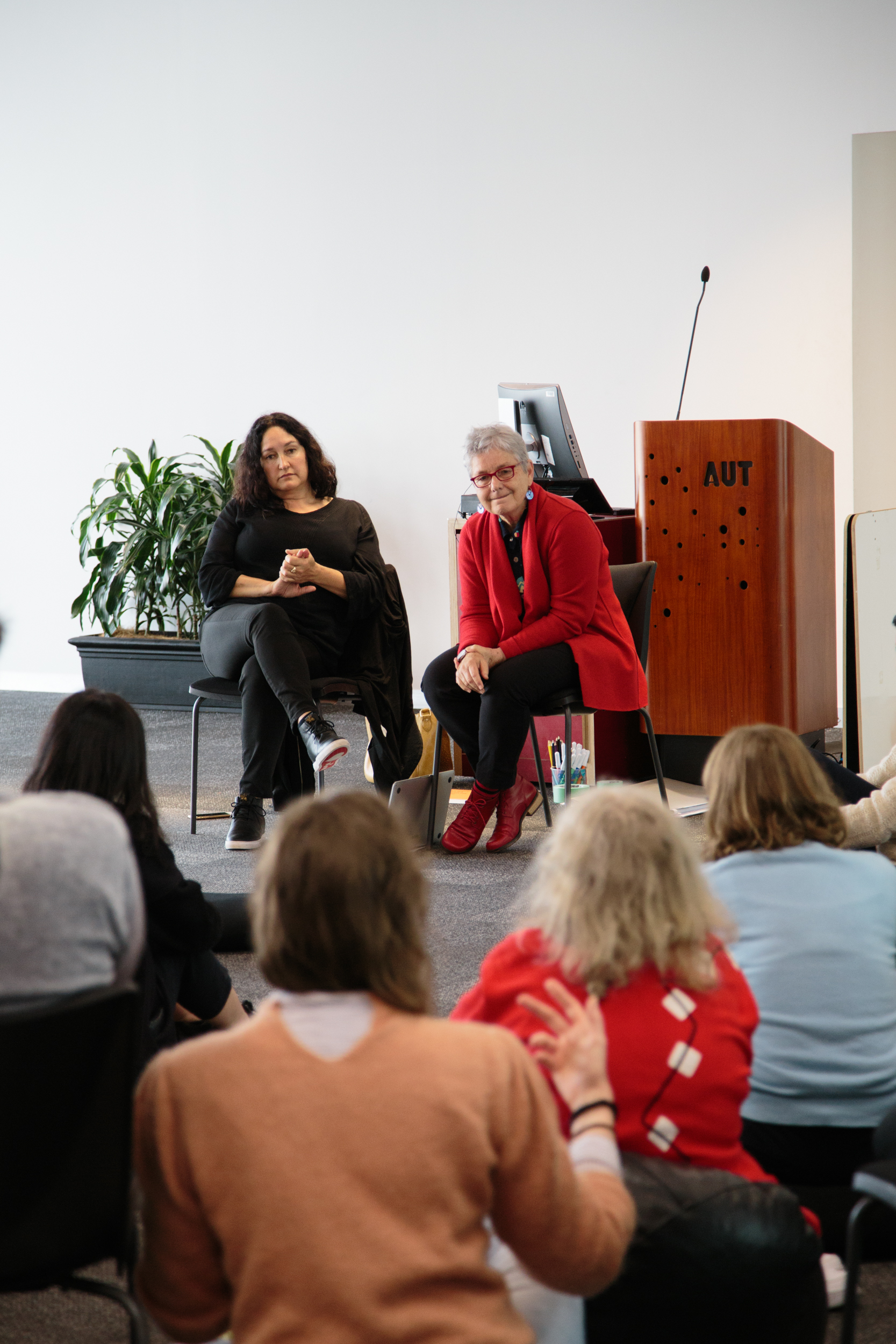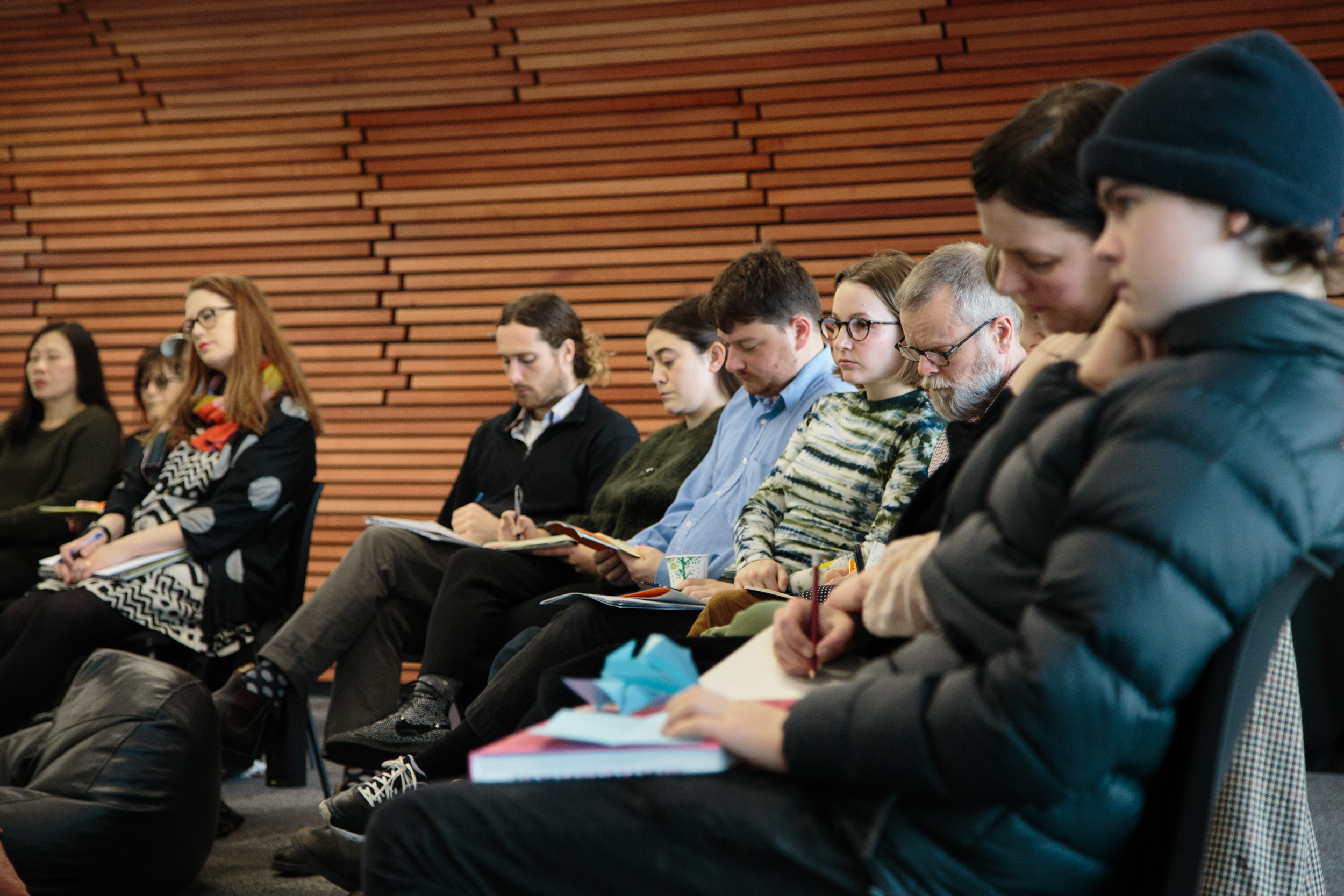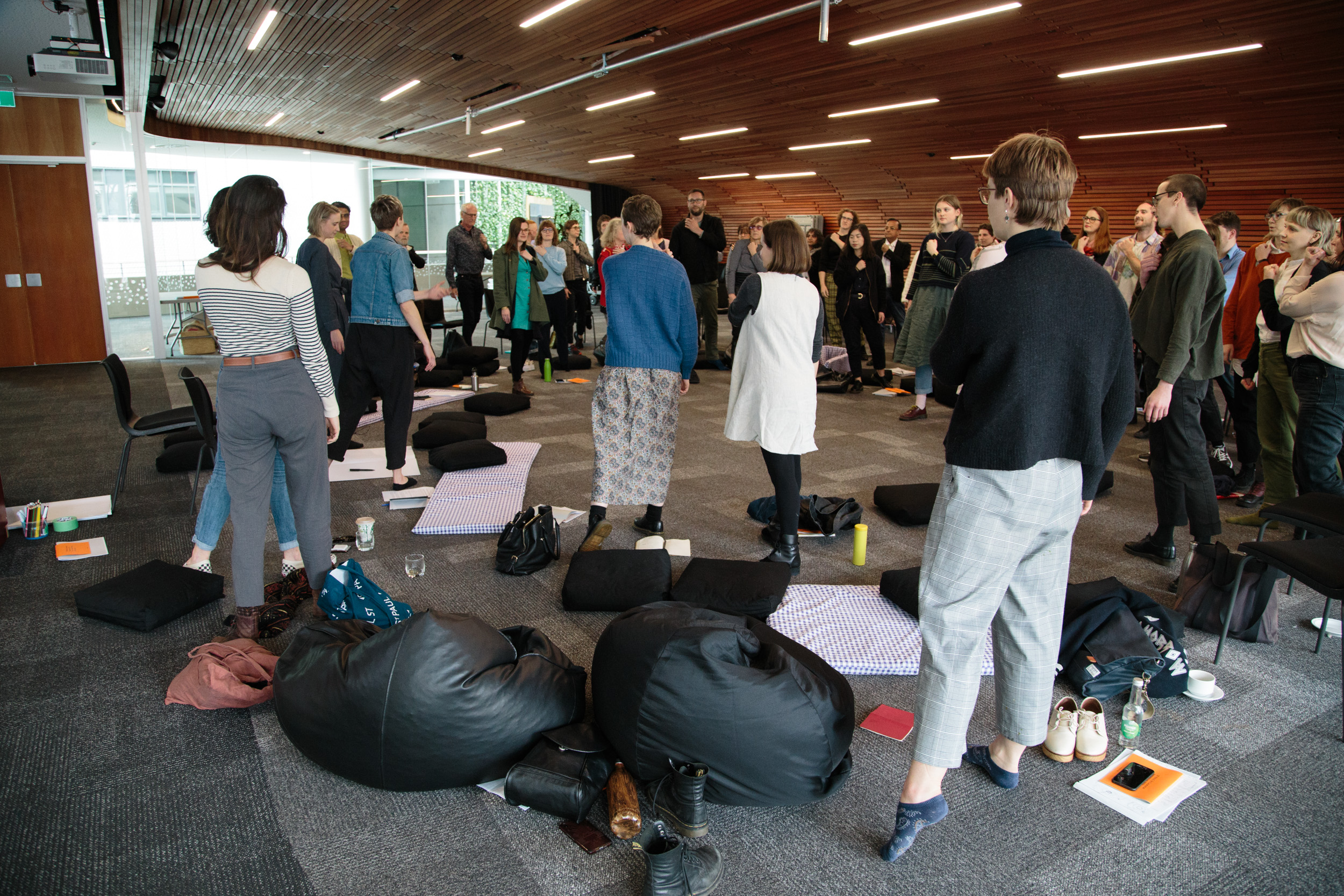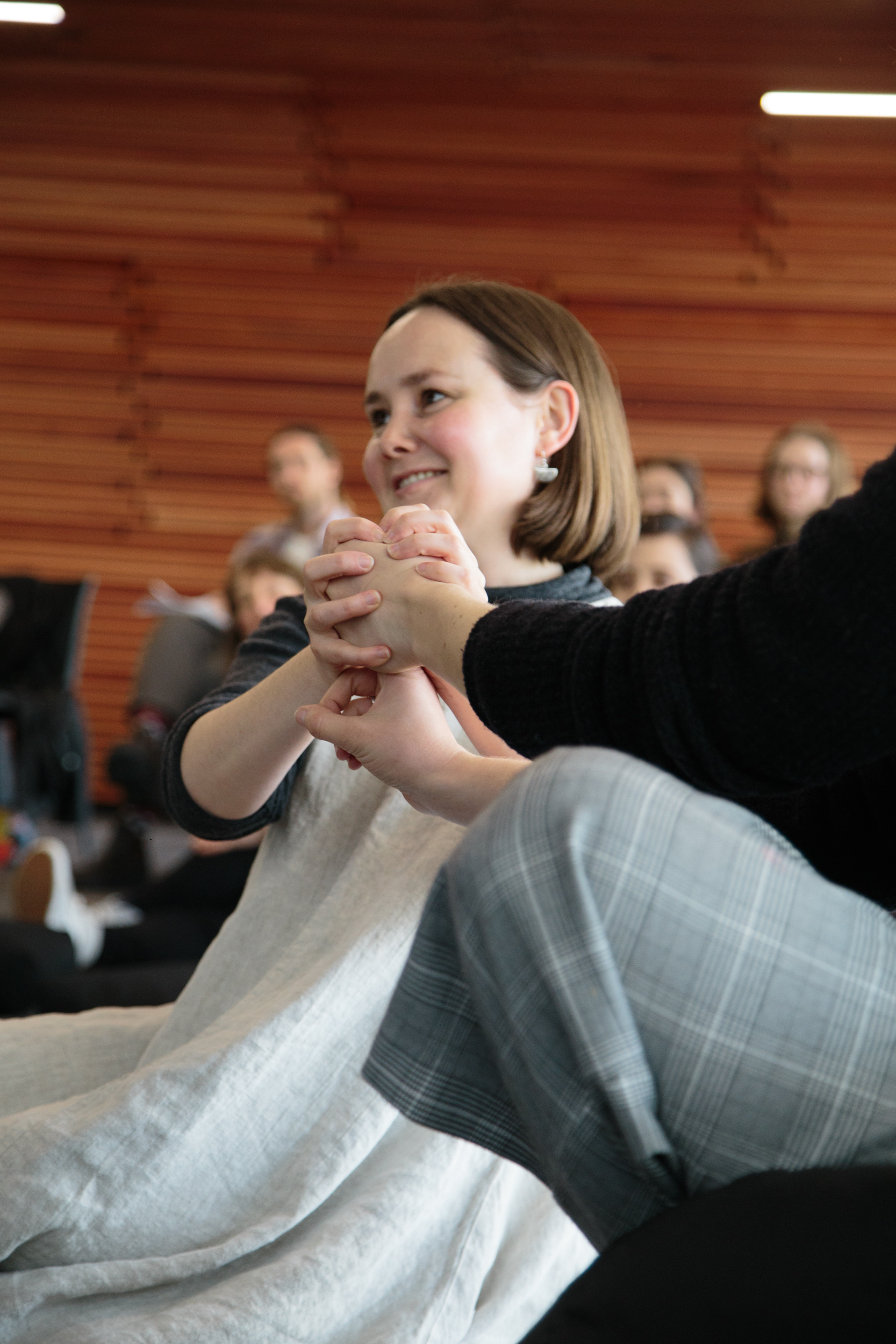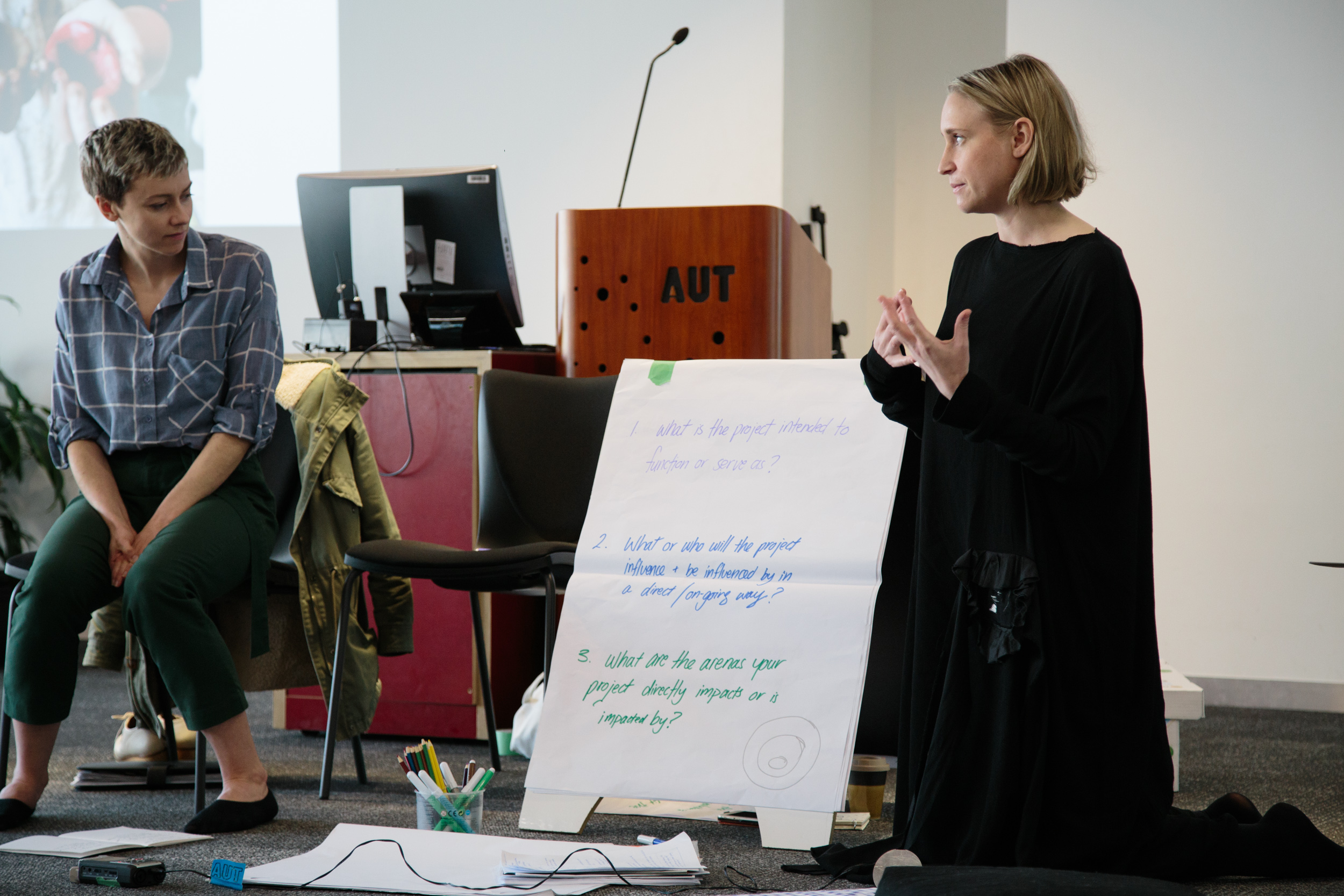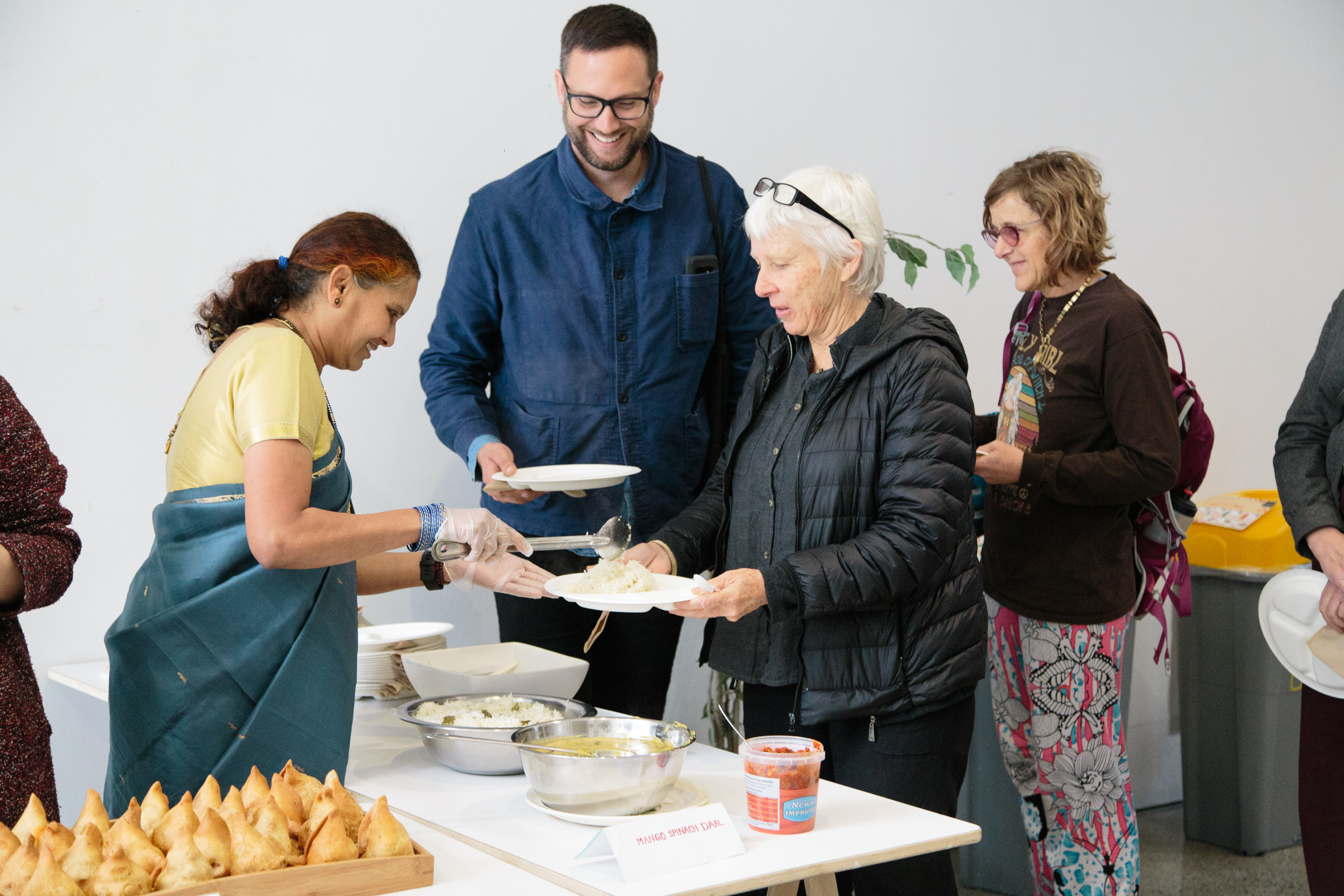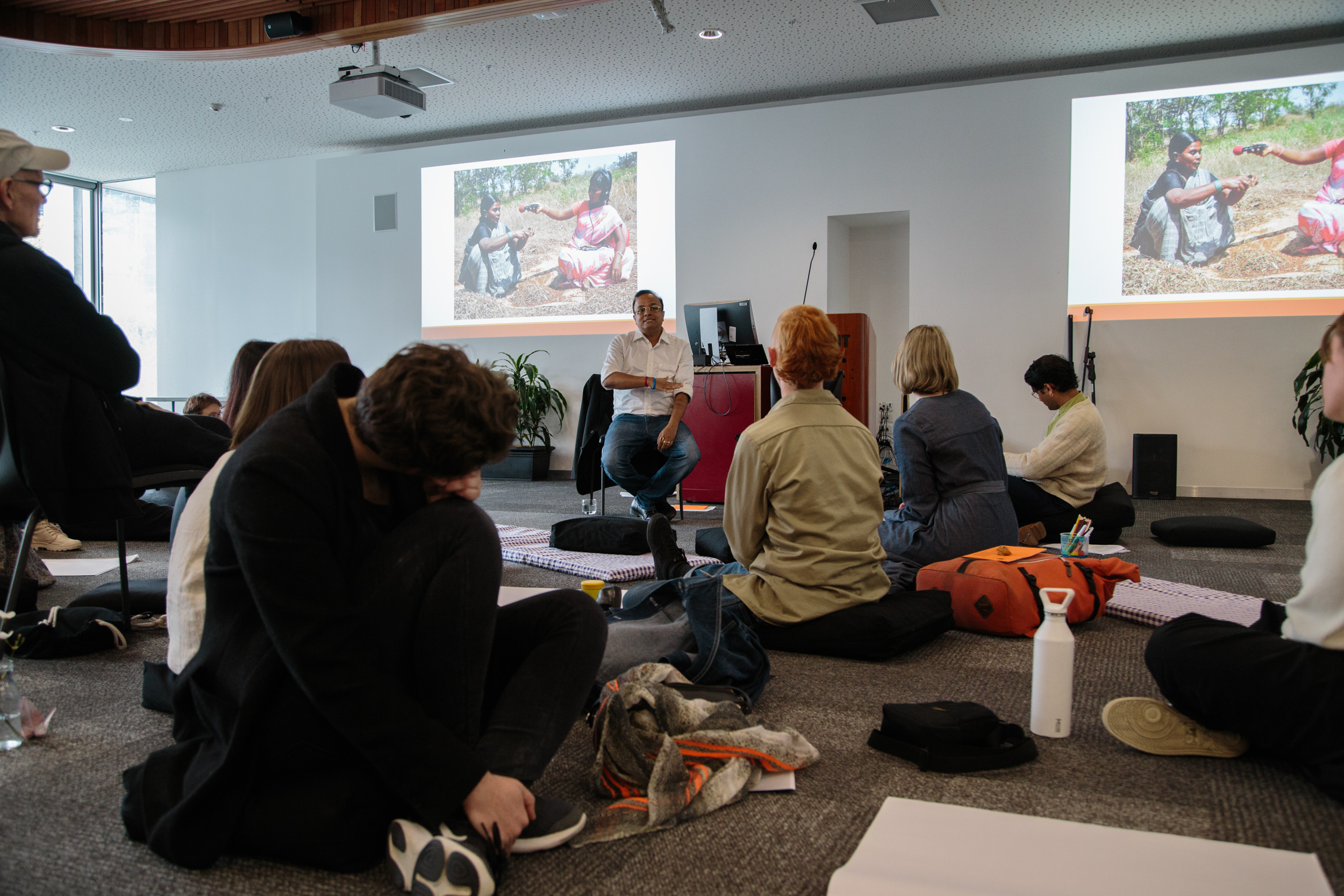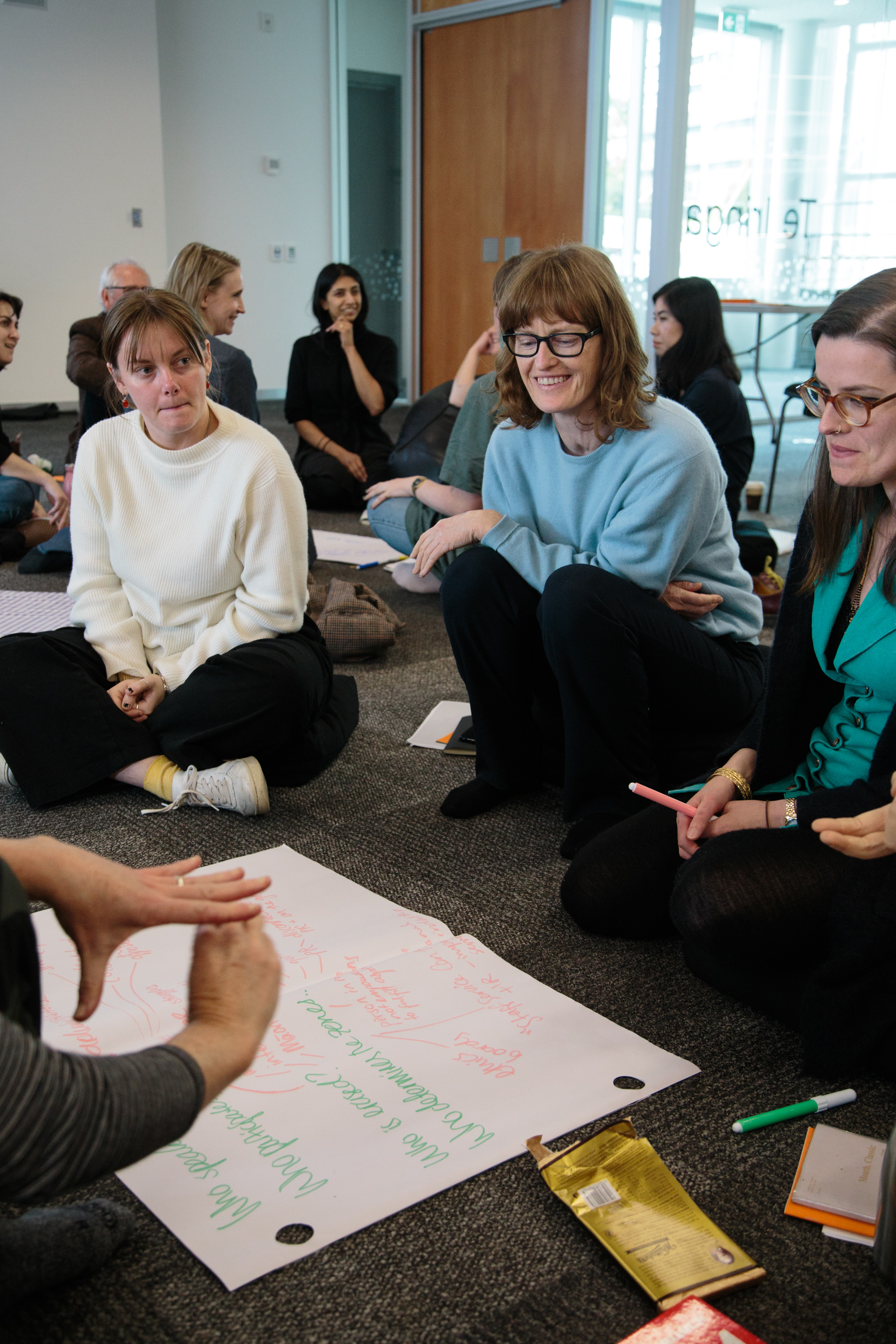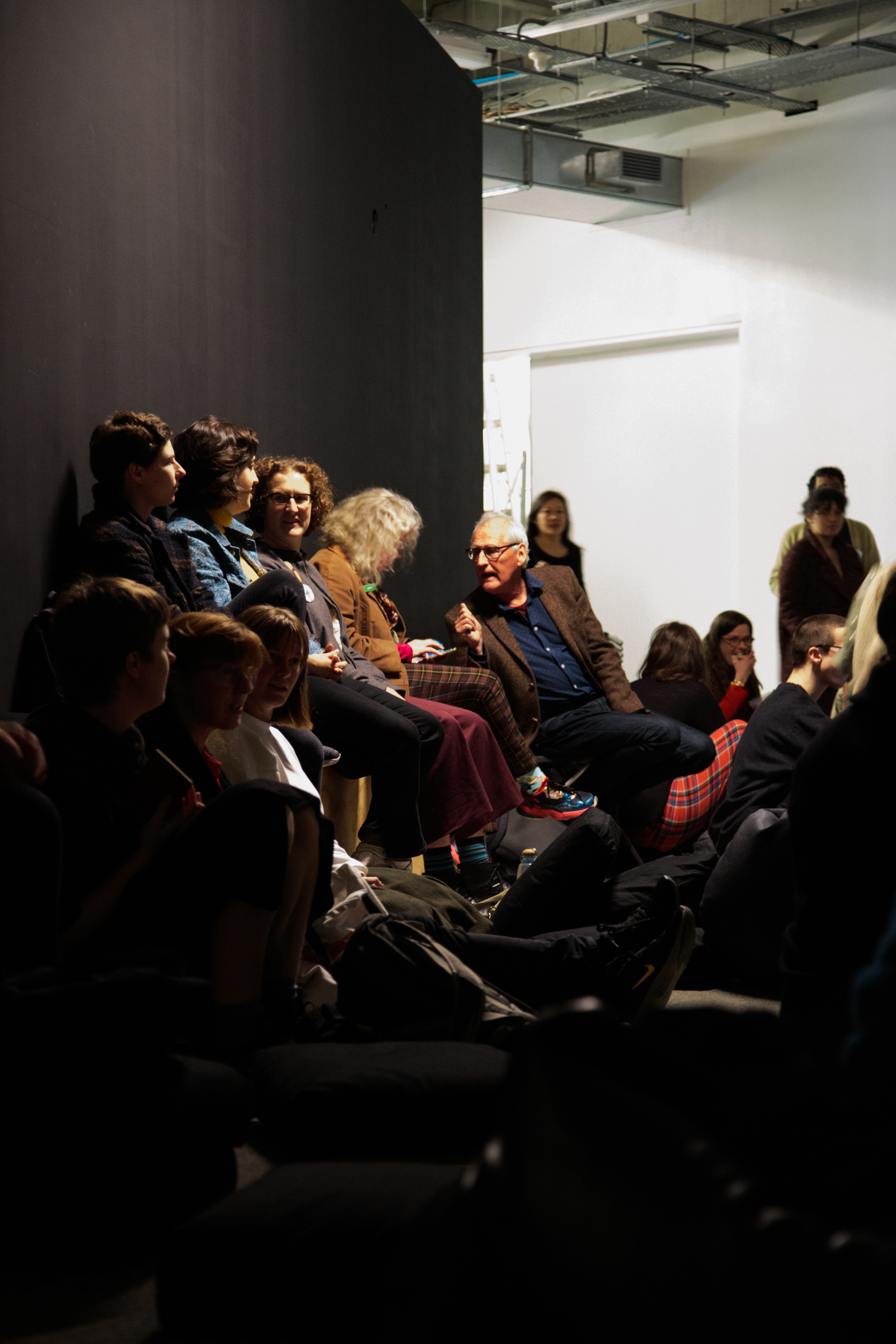ST PAUL St Curatorial Symposium 2019: It's as if we were made for each other: publication and programme booklet
Pallavi Paul and Fiona Amundsen: Audio Dispatches—Meeting Each Other audio
It's as if we were made for each other
3 – 5 October 2019
City Campus
Auckland University of Technology
Te Wānanga Aronui o Tāmaki Makau Rau
Co-convened by Balamohan Shingade and Taarati Taiaroa
$30 – $60. To register, click here
* The Symposium is structured as a complete programme. Registration indicates that you are available to attend its full duration. The registration fee contributes to the three meals we will be sharing. If the cost is a barrier to you attending, then please get in touch with us at sgallery@aut.ac.nz
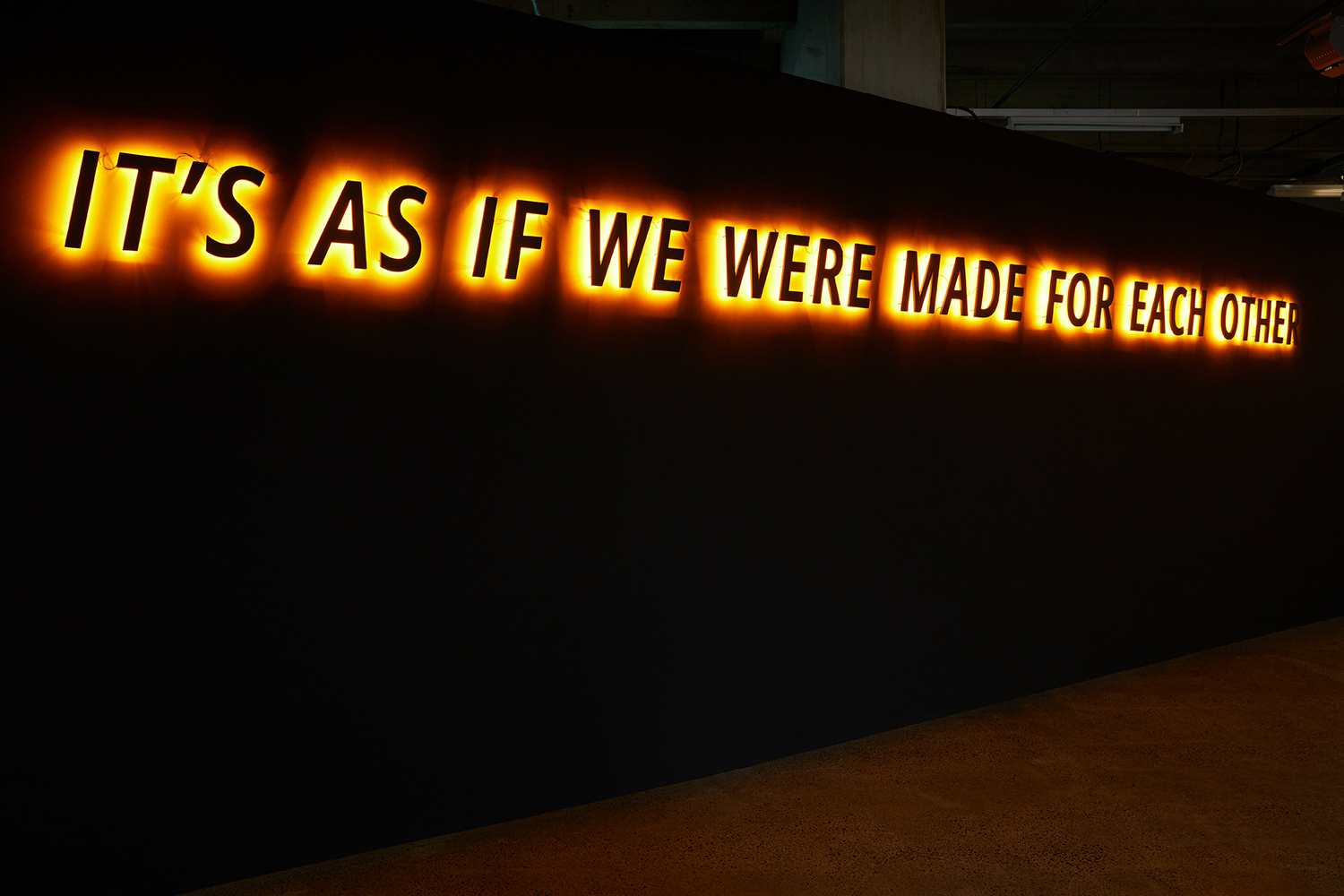
Deborah Rundle, Made for Each Other, 2019. Photo courtesy of Sam Hartnett.
The 2019 Curatorial Symposium extends on the core concerns of sociability in the exhibition How to Live Together, which is guided by the coupled question: What is the intimacy we must develop to create community? What is the distance we must maintain to retain our solitude?
This year is the eighth in a series of symposia that have been concerned with artistic and curatorial practices as they relate to knowledge production, exhibition-making, and relational commitment. As a transdisciplinary and discursive event, this year’s Curatorial Symposium seeks ways out of a dominant paradigm that renders our sociabilities—our ways of being in relation with each other—alienating, inequitable and extractive. As a discursive event that attends to place-based contexts, this year’s Symposium invites practitioners to explore transdisciplinary ways of activating personal, programmatic and systemic transformation.
The title of this year’s Symposium, It’s as if we were made for each other, is borrowed from an artwork by Deborah Rundle. For this work, Rundle employs the romantic cliché to seek an alternative interpretation for the word ‘we’, where it extends outward from the couple to a larger sense of connectedness.
The Symposium opens with O Horizon, an essay film by The Otolith Group centred on the school Santiniketan, founded by the poet Rabindranath Tagore in 1901 in West Bengal. On the founding of Santiniketan, Tagore wrote in a 1922 letter to Patrick Geddes, “I merely started with this one simple idea, that education should never be dissociated from life.” The Symposium seeks sympathies with this interconnected and integrated approach to art, education and life.
The programme over the following two days will be facilitated by Professor Mohan J. Dutta, artists Fiona Amundsen and Pallavi Paul, Regenerative Practitioners and other invited contributors and conversation partners. The Symposium continues a method of collective enquiry seeded by the 2018–19 Two Oceans at Once programme. Inhabiting a flat structure in which contributors and participants are on level ground, the Symposium format will comprise of three movements: coming into relationship with, being in relation, and emergence. With this in mind, the Symposium is imagined as a scene to dwell in, an experience to live through or a landscape to sketch out, together.
For the Symposium, Regenerative Practitioners will resource our collective enquiry with regenerative concepts, principles and technologies. Regenerative development is an approach that draws on whole living-systems thinking to transform our mind-set, being and function from mechanistic to ecological. Starting from place, regenerative development actively resists the application of generic, one-size-fits-all thinking in favour of understanding and lifting up the unique socio-ecological context that a project or initiative aims to impact.
Mohan J. Dutta has developed the Culture-Centred Approach (CCA) based on his work on claims to health and human rights among indigenous communities, sex workers, low wage migrant workers, precarious workers, farmers, and communities living in extreme poverty at the global margins. Through academic-activist collaborations, the CCA outlines culturally-based participatory strategies of radical democracy for addressing inequality. Mohan asks, what are the communicative inequalities that construct human struggles for voice at the global margins, and how are these inequalities dismantled through movements, creative interventions, and socialist projects on the Left? At the core of his research agenda is the activist emphasis on provincializing Eurocentric knowledge structures, and de-centering hegemonic knowledge constructions through subaltern participation in socialist imaginaries for sustainable futures.
As artists working with documentary methodologies, Fiona Amundsen and Pallavi Paul contend with the complexities of ‘being in relation’ with subjects. They ask, how can lens-based, documentary practices enable forms of knowing that privilege connecting, imagining, listening and ethics over strategies of making history visible and knowable? How can lens-based, documentary practices consciously reflect on possibilities for voice and to witness in, what Paul refers to as, ‘the theatre of truth’?
We invite artists, curators and cultural workers; educators, teachers and students; researchers and subjects; poets, public servants, citizens... anyone whose praxis is motivated by working in relation with others, to join this enquiry in order to find ways of recovering our relationships from alienating, extractive and inequitable methods.
Since 2012, the Symposia series have engaged with forms of knowledge to assist practitioners to inhabit their arts vocation with criticality and care. Through the Symposia and other programmes, St Paul St Gallery, AUT takes up one of the primary instructions for universities in the New Zealand Education Act (1989), that they “accept a role as critic and conscience of society.” Through our programmes, we interrogate the proposition that the arts have a particular capacity to speak critically about society.
Programme
Thursday 3 October
ST PAUL St Gallery, AUT
40 St Paul Street, Auckland 1010
17:00 Registration
17:30 Welcome
17:40 Co-convenors’ Introduction
18:00 Dinner at ST PAUL St Gallery
18:45 The Otolith Group, O Horizon
20:30 Fin
Friday 4 October
Te Irirangi (WG308)
Level 3, WG Building, AUT
2 Gov. Fitzroy Place, Auckland 1010
10:00 Co-convenors Introduction
10:05 Te Kawehau Hoskins and Alison Jones, Māori and Pākehā in conversation about relationships
11:15 Coffee break
11.30 Regenerative development Facilitated by Lucy-Mary Mulholland, Working with wholes
13:00 Lunch at ST PAUL St Gallery
14:00 Mohan J Dutta, Organizing community and infrastructures for listening: Toward socialist futures17:00 Fin
Saturday 5 October
Te Irirangi (WG308)
Level 3, WG Building, AUT
2 Gov. Fitzroy Place, Auckland 1010
10:00 Co-convenors Introduction
10:05 Regenerative development facilitated by Lucy-Mary Mulholland, Reciprocity11:15 Coffee break
11:30 Pallavi Paul and Fiona Amundsen, Audio Dispatch12:30 Lunch at ST PAUL St Gallery
13:30 Regenerative development facilitated by Lucy-Mary Mulholland, Emergence14:45 Closing
15:00 Fin
For more information, contact sgallery@aut.ac.nz
All photos courtesy of Emily Parr.
